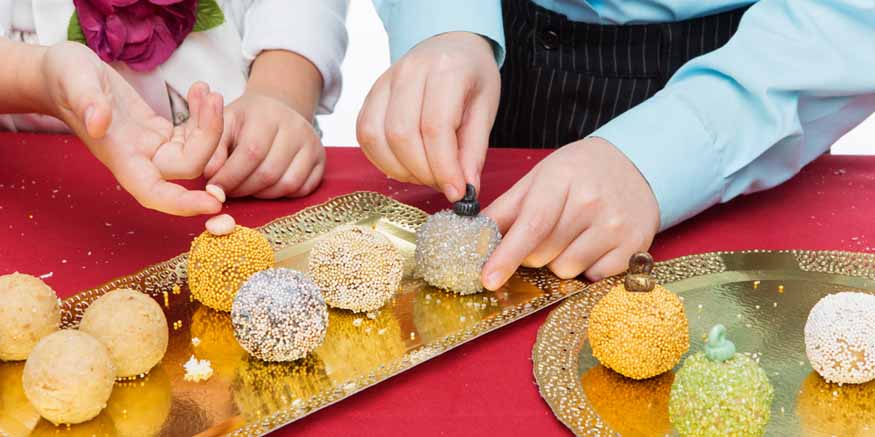Nail biting is a common habit among children that can be challenging for parents to break. While it may seem like a harmless activity, nail biting can lead to various physical and psychological issues. Understanding nail-biting causes and implementing strategies on how to stop biting nails can help parents guide their children towards healthier habits.
Understanding Nail Biting Causes
Nail biting often starts in early childhood and can continue into adolescence and adulthood if not addressed. There are several reasons why children develop this habit, including:
Stress and Anxiety: Children may bite their nails as a way to cope with stress or anxiety. This can be due to various factors such as academic pressure, family issues, or social challenges.
Boredom: When children are bored or idle, they may turn to nail biting as a way to keep themselves occupied.
Imitation: Children often mimic the behaviours of their parents, siblings, or peers. If they observe someone close to them biting their nails, they may adopt the habit themselves.
Attention-Seeking: Some children may bite their nails to gain attention from their parents.
Nail Biting Effects
While nail biting may seem like a minor issue, it can lead to several negative consequences, including:
Dental Problems: Constant nail biting can cause damage to the teeth and gums, leading to issues such as chipped or misaligned teeth and gum infections.
Infections: Biting nails can introduce bacteria and germs into the mouth, increasing the risk of infections in the mouth and nail bed.
Skin Damage: Nail biting can cause damage to the skin around the nails, leading to painful hangnails, bleeding, and soreness.
Social and Emotional Impact: Children who bite their nails may feel self-conscious or embarrassed, which can affect their self-esteem and social interactions.
Habit Persistence: If not addressed, nail biting can become a long-term habit that persists into adulthood, making it even harder to break.
How to Stop Biting Nails: Effective Strategies
Identify Triggers: The first step in helping your child stop nail biting is to identify the triggers that lead to the behaviour. Pay attention to when and where your child bites their nails and look for patterns or specific situations that may be causing stress or boredom.
Provide Alternatives: Offer your child alternative activities to keep their hands busy. This can include stress balls, fidget toys, or engaging in hobbies such as drawing or playing a musical instrument.
Positive Reinforcement: Encourage your child to stop nail biting by using positive reinforcement. Praise them for not biting their nails and offer small rewards for progress. This can help motivate them to continue working towards breaking the habit.
Educate Your Child: Explain to your child the negative consequences of nail biting, such as dental problems and infections. Helping them understand the reasons why they should stop can make them more willing to change their behaviour.
Set Realistic Goals: Break the habit gradually by setting small, achievable goals. For example, start by focusing on not biting your nails during specific times of the day or in certain situations. Gradually increase the length of time and the situations where they avoid nail biting.
Stress Management Techniques: Teach your child healthy ways to manage stress and anxiety, such as deep breathing exercises, mindfulness, and physical activities. These techniques can help reduce the urge to bite their nails when they are feeling anxious or stressed.
Create a Supportive Environment: Provide a supportive and understanding environment for your child. Encourage open communication about their feelings and offer reassurance and guidance as they work towards breaking the habit.
Consult a Professional: If nail biting persists despite your efforts, consider seeking advice from a paediatrician, psychologist, or counsellor. They can provide additional strategies and support to help your child overcome nail biting.
How to Avoid Nail Biting: Preventive Measures
Maintain Short Nails: Keeping your child’s nails trimmed and well-groomed can reduce the temptation to bite them. Short nails are harder to bite, making it less likely for your child to engage in the behaviour.
Use Distractions: Keep your child’s hands occupied with activities that require the use of their fingers, such as puzzles, crafts, or building blocks. Engaging in these activities can divert their attention away from nail biting.
Regular Reminders: Gently remind your child to avoid nail biting when you notice them engaging in the habit. Use positive language and avoid criticism or punishment, as this can lead to increased stress and exacerbate the behaviour.
By understanding nail-biting causes and implementing effective strategies on how to stop biting nails, parents can help their children develop healthier habits. It is important to address the habit early on to prevent potential nail-biting effects and ensure the well-being of the child. With patience, persistence, and a supportive environment, children can overcome nail biting and enjoy a healthier, more confident lifestyle.
At Mother’s Pet Kindergarten, we believe in fostering healthy habits and well-being in our students. Our holistic approach includes educating children on the importance of personal hygiene and providing support to help them overcome habits like nail biting. Together with parents, we aim to create a nurturing environment where children can thrive and develop positive behaviours that will benefit them throughout their lives.













Recent Comments